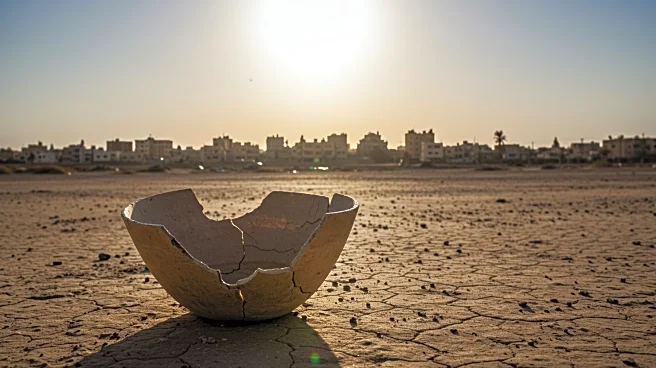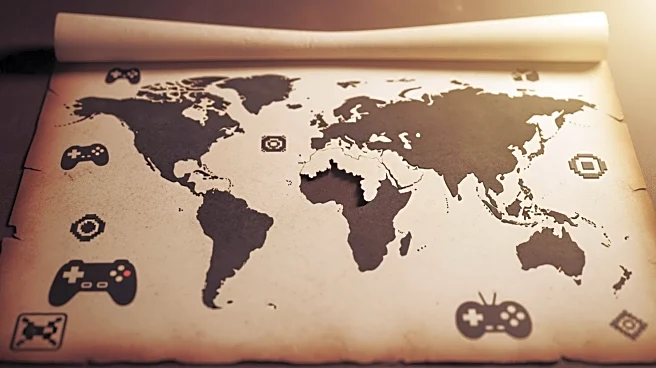What's Happening?
The Integrated Food Security Phase Classification (IPC) has declared a famine in Gaza, marking a significant humanitarian crisis. According to the IPC, more than 500,000 people in Gaza are experiencing extreme food deprivation, acute malnutrition, and starvation-related deaths. This declaration follows a comprehensive survey of available data, which meets the IPC's stringent criteria for Level 5 'catastrophic' hunger. The situation is exacerbated by ongoing conflict, displacement, and restrictions on humanitarian access, leading to severe food shortages. The United Nations and various aid agencies have called for immediate humanitarian access and a ceasefire to prevent further loss of life.
Why It's Important?
The declaration of famine in Gaza underscores a severe humanitarian crisis with potential implications for international relations and human rights. The situation highlights the urgent need for humanitarian intervention and could influence global diplomatic efforts to address the conflict. The crisis affects not only the immediate population in Gaza but also poses a challenge to international humanitarian law and the responsibilities of occupying forces. The potential for increased mortality rates and further displacement could lead to broader regional instability, impacting neighboring countries and international stakeholders.
What's Next?
The international community faces pressure to respond to the IPC's findings with immediate humanitarian aid and diplomatic efforts to secure a ceasefire. The United Nations and other international bodies may increase their calls for action, potentially leading to resolutions or interventions aimed at alleviating the crisis. The situation may also prompt discussions on the legal and ethical responsibilities of occupying forces under international law, with potential implications for future conflict resolution strategies.
Beyond the Headlines
The famine declaration in Gaza raises ethical questions about the responsibilities of the international community in preventing man-made humanitarian disasters. It also highlights the challenges of delivering aid in conflict zones and the potential for such crises to be used as leverage in geopolitical conflicts. The situation may lead to long-term shifts in how humanitarian aid is prioritized and delivered in conflict-affected regions.









